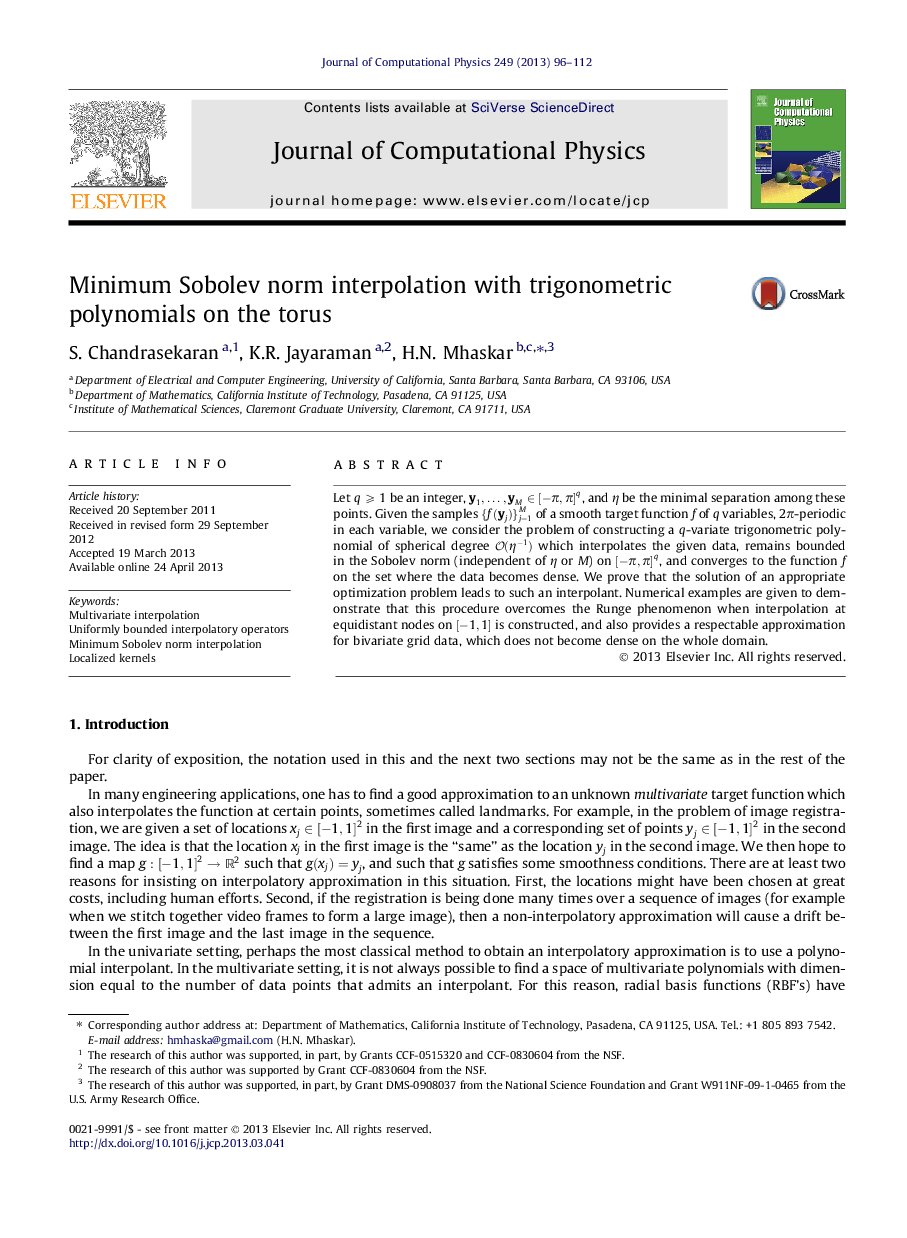| Article ID | Journal | Published Year | Pages | File Type |
|---|---|---|---|---|
| 6933792 | Journal of Computational Physics | 2013 | 17 Pages |
Abstract
Let q⩾1 be an integer, y1,â¦,yMâ[-Ï,Ï]q, and η be the minimal separation among these points. Given the samples {f(yj)}j=1M of a smooth target function f of q variables, 2Ï-periodic in each variable, we consider the problem of constructing a q-variate trigonometric polynomial of spherical degree O(η-1) which interpolates the given data, remains bounded in the Sobolev norm (independent of η or M) on [-Ï,Ï]q, and converges to the function f on the set where the data becomes dense. We prove that the solution of an appropriate optimization problem leads to such an interpolant. Numerical examples are given to demonstrate that this procedure overcomes the Runge phenomenon when interpolation at equidistant nodes on [-1,1] is constructed, and also provides a respectable approximation for bivariate grid data, which does not become dense on the whole domain.
Keywords
Related Topics
Physical Sciences and Engineering
Computer Science
Computer Science Applications
Authors
S. Chandrasekaran, K.R. Jayaraman, H.N. Mhaskar,
